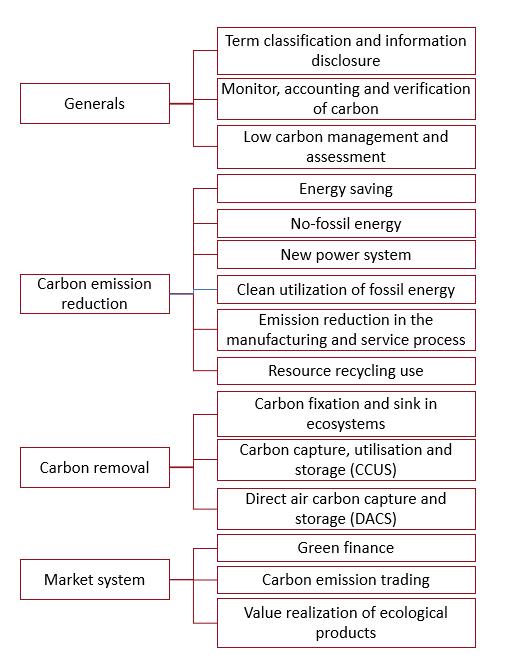

 会员登录
会员登录

- Home
- About us
- Corporate News
- China Policy
- China Compliance
- BESTAO Library
- Events
- Our Services
On April 1, 2023, the Standardization Administration of China (SAC) partnered with ten other ministries and jointly issued the Guidelines on the Construction of Carbon Peak and Carbon Neutrality Standard System (hereafter referred to as “the Guidelines”). It is a further supportive document for the working goals laid out in the Implementation Plan for Establishing and Improving the Measurement System for Carbon Peak and Carbon Neutrality Standards (issued by the State Administration for Market Regulation jointly with multiple national ministries on October 18, 2022) and outlines the standard system and more concrete next steps for China’s carbon peak and neutrality goals.
The Guidelines emphasize optimizing the duality between government-issued standards and market-based standards, as well as calls for cross-industry and cross-sector standard coordination. Quantitative goals set in the Guidelines include to newly draft and revise no less than 1000 national and sector standards and to actively participate in the work of no less than 30 international standards.
General design
The standard system is defined in the document to have 4 categories, which consist of 15 second-tier sub-systems as the diagram below:

Key contents that relate to enterprises and manufacturers
· Standards and specifications on carbon emission calculation, reporting standards, and data quality will be formulated for key sectors including machinery, ICT, transportation etc.
· Optimize carbon emission evaluation standards, and explore to formulating carbon footprint standards.
· Formulate or revise standards for green products or overall (cross-sector) carbon neutrality assessment.
· Accelerate the standard revision/drafting for mandatory energy consumption limit, and make such parameters coordinate with the carbon emission index for key sectors such as mining, machinery and transportation.
· Follow international advanced level to improve the mandatory energy efficiency standards for industrial equipment, home appliance, lighting equipment, new energy/renewable energy equipment, machinery manufacturing equipment etc.
· Set up standards and specifications to complete the carbon emission trading system: quota distribution, adjustment etc.
Further Details for High-profile Sectors
Further specifically, based on the Guidelines, standards are to be formulated or revised in the following perspectives in some high-profile sectors:
· Automobile and machinery:
- For achieving emission reduction in the manufacturing and service process: standards for low-carbon and carbon fixation technology, low-carbon process and equipment, non-carbon dioxide greenhouse gas emission reduction technology, low-carbon detection technology, low-carbon metering and analysis technology, green manufacturing, water saving etc., and other key technical standards and supporting standard samples.
- For promoting hydrogen energy: standards for hydrogen filling stations and fuel cell batteries.
- For promoting EV development: standards on safety and functional requirements, testing methods, remote service management, safety technical inspection for the vehicle’s drive system, traction battery system and charging/battery swap system.
- To enhance energy consumption and efficiency management: improve energy consumption limits, labelling, calculation of energy consumption, as well as assessment methods.
- For emission control: accelerate the research and revision of the next emission control level.
- For resource recycling: standards on recycling and reuse of waste traction(power) battery, and the remanufacturing of automobile parts and machine tools.
· Agriculture: standards on energy-saving and low carbon for agricultural machinery.
International Standardization Cooperation Planning
In the topic of international standard system interaction and development, the Guidelines state to:
· Establish an international standardization working group of all relevant national ministries (including but not limited to SAMR, NDRC, MIIT, MEE, together with regulators on foreign affairs, commerce, natural resources, science and technology, agriculture and rural affairs etc.) to facilitate international standard cooperation on carbon, and better implement international carbon standard work.
· Set up a batch of standard expert groups to actively involve in international standard drafting.
· Enhance the cooperation and communication with the UN’s Intergovernmental Panel on Climate Change (IPCC), ISO, IEC and ITU to follow up on the latest carbon-relevant standards and achievements.
· Further study and research on standardization policy and technical trade measures of developed countries such as the United States and EU.
· Actively submit proposals on international standards under the topic of greenhouse gas emissions monitoring and accounting, forest and grass carbon fixation and sink enhancement, clean and low-carbon use of traditional energy in the energy sector, clean energy, information and communication sector and digital empowerment etc.
· Actively push the founding of technical groups in international SDOs on the topic of regional energy systems, medical refrigeration equipment and ecological carbon sink etc.
· Recommend China experts to join strategic research and governance coordination institutions such as the ISO Climate Change Coordination Committee (CCCC), ISO ESG CC and UN’s Council of Engineers for the Energy Transition (CEET).
· Convert applied international standards into China under the topic of greenhouse gas management, carbon footprint, carbon capture, utilization and storage, clean energy, and energy conservation.
· Increase the foreign version translation of China’s national, sector and regional standards to facilitate international promotion and application in service trade, overseas projects etc.
Foreign manufacturers are advised to pay more attention to energy efficiency and consumption standard changes, as they would directly impact the market access of relevant product. MNCs with the aforementioned carbon reduction technologies may have better market opportunities and are suggested to participate in the standard system construction by taking part in relevant TC works, or actively communicating with Chinese experts in international SDO works.
If you need more information on the topic or have any question, please contact: assistant@bestao-consulting.com